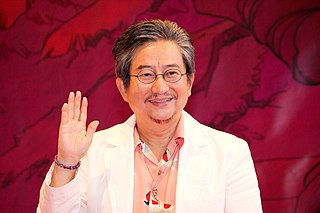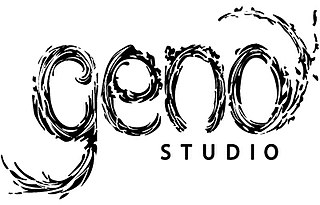
Anime, sometimes called Japanimation, is hand-drawn and computer animation originating from Japan. The term anime is derived from the English word animation, and in Japan is used to refer to all forms of animated media. Outside Japan, the term refers specifically to animation from Japan or to a Japanese-disseminated animation style often characterized by colorful graphics, vibrant characters and fantastical themes. This culturally abstract approach to the word's meaning may open the possibility of anime produced in countries other than Japan.

Original video animation, abbreviated as OVA and sometimes as OAV, are Japanese animated films and series made specially for release in home video formats without prior showings on television or in theatres, though the first part of an OVA series may be broadcast for promotional purposes. OVA titles were originally made available on VHS, later becoming more popular on LaserDisc and eventually DVD. Starting in 2008, the term OAD began to refer to DVD releases published bundled with their source-material manga.

Osamu Tezuka was a Japanese manga artist, cartoonist, and animator. Born in Osaka Prefecture, his prolific output, pioneering techniques, and innovative redefinitions of genres earned him such titles as "the Father of Manga", "the Godfather of Manga" and "the God of Manga". Additionally, he is often considered the Japanese equivalent to Walt Disney, who served as a major inspiration during Tezuka's formative years. Though this phrase praises the quality of his early manga works for children and animations, it also blurs the significant influence of his later, more literary, gekiga works.

Toei Animation Co., Ltd. is a Japanese animation studio primarily controlled by its namesake Toei Company. It has produced numerous series, including Sally the Witch,Gegege no Kitaro,Mazinger Z, Galaxy Express 999. Dr. Slump, Dragon Ball, Saint Seiya, Sailor Moon, Slam Dunk, Digimon, One Piece, The Transformers (1984–1987) and the Precure series.
Madhouse Inc. is a Japanese animation studio founded in 1972 by ex–Mushi Pro animators, including Masao Maruyama, Osamu Dezaki, Rintaro and Yoshiaki Kawajiri.

Shotaro Ishinomori was a Japanese manga artist who became an influential figure in manga, anime, and tokusatsu, creating several immensely popular long-running series such as Cyborg 009, the Super Sentai series, and the Kamen Rider series. He was twice awarded by the Shogakukan Manga Award, in 1968 for Sabu to Ichi Torimono Hikae and in 1988 for Hotel and Manga Nihon Keizai Nyumon. He was born and named Shotaro Onodera in Tome, Miyagi, and was also known as Shotaro Ishimori before 1986, when he changed his family name to Ishinomori with "ノ".

Shogakukan Inc. is a Japanese publisher of dictionaries, literature, manga, non-fiction, DVDs, and other media in Japan.
Anime News Network (ANN) is an anime industry news website that reports on the status of anime, manga, video games, Japanese popular music and other related cultures within North America, Australia, Southeast Asia and Japan. The website offers reviews and other editorial content, forums where readers can discuss current issues and events, and an encyclopedia that contains many anime and manga with information on Japanese and English staff, theme music, plot summaries, and user ratings.
Mag Garden is a Japanese publishing company that focuses on manga-related publications and is also involved in the development of anime and live-action adaptations. It was founded on June 5, 2001 by Yoshihiro Hosaka along with former manga artists of Enix. The company performed a merger with Production I.G on December 1, 2007 to form the new company IG Port, becoming one of IG Port's subsidiaries alongside Signal.MD and Wit Studio.

Monthly Ikki was a monthly seinen manga magazine published by Shogakukan. It tended to specialize in underground or alternative manga, but has had its share of major hits as well. The magazine started has a spin-off of Shogakukan's Big Comic Spirits in 2000 and became a standalone monthly magazine in 2003. Notably, both Bokurano and Ride Back have received anime adaptations. In 2009 Viz Media launched an online English version of Ikki named Sigikki. The website serializes various titles from Ikki online and then when a title proves to be popular it receives publication in graphic novel form. The manga magazine suspended publication on 25 September 2014.

Rideback, stylized as RIDEBACK or RideBack, is a Japanese manga series created by Tetsurō Kasahara. It was serialized in Shogakukan's monthly Monthly Ikki magazine from April 25, 2003 to October 25, 2008, spanning a total of ten volumes. Set in Japan in 2020, it follows the story of female student Rin Ogata as she comes across a two-wheeled automobile robot known as a Rideback. In 2009, it was adapted into an anime television series by Madhouse. At Anime Central 2010, anime distributor Funimation announced that they have licensed the series for North America with its release planned for 2011.

"RIDEBACK" is the fifth single of I've Sound singer, Mell. It was released on March 4, 2009 which serves as the opening theme for the anime series Rideback. The single has a Japanese version, a remix version and the instrumental version of the title track in addition to the original English track.
ICHI Corporation(株式会社ICHI), formerly known as Knack Productions(ナック, 株式会社KnacK) until August 2008, is a Japanese anime and film production company.

Kiyoshi Nagai, better known by the pen name Go Nagai, is a Japanese manga artist and a prolific author of science fiction, fantasy, horror and erotica. He made his professional debut in 1967 with Meakashi Polikichi, but is best known for creating popular 1970s manga and anime series such as Cutie Honey, Devilman and Mazinger Z. He is credited with creating the super robot genre and for designing the first mecha robots piloted by a user from within a cockpit with Mazinger Z, and for pioneering the magical girl genre with Cutie Honey, the post-apocalyptic manga/anime genre with Violence Jack, and the ecchi genre with Harenchi Gakuen. In 2005, he became a Character Design professor at the Osaka University of Arts. He has been a member of the Tezuka Osamu Cultural Prize's nominating committee since 2009.

Fire Force is a Japanese manga series written and illustrated by Atsushi Ōkubo. It has been serialized in Kodansha's Weekly Shōnen Magazine since September 2015, and collected into 24 tankōbon volumes as of July 2020.

Atom: The Beginning is a Japanese manga series written and illustrated by Tetsuro Kasahara, with writing contributions by Makoto Tezuka and Masami Yuki. The series is a prequel to Osamu Tezuka's Astro Boy manga series, depicting the events up until the birth of Astro Boy. It began serialization in Shogakukan's Monthly Hero's magazine on December 1, 2014, and has been compiled into ten tankōbon volumes as of July 2019. An anime television series adaptation aired from April 15 to July 8, 2017.

Geno Studio, Inc. is a Japanese animation studio subsidiary of animation production company Twin Engine.
Rideback is a production company formed on December 12, 2007 by producer Dan Lin. It is notable for The LEGO Movie franchise.











